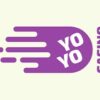Welcome to our insightful article on the earnings of poker dealers and the significant impact of tips on their overall income. As professional copywriting journalists, we have conducted in-depth research to uncover the facts and figures related to poker dealer earnings, salaries, and the factors that influence their tips. If you’re curious about the financial aspects of this fascinating profession, you’ve come to the right place.
Key Takeaways:
- Poker dealers in the US have a median salary of just under $53,000, with additional pay from tips.
- The amount of tips a poker dealer receives can be influenced by factors such as customer service, dealer skill, and player success.
- Average tips for poker dealers can vary from 10-15% of the pot, depending on the casino and individual players.
- Dealers can increase their tips by providing excellent customer service and creating a positive atmosphere at the table.
- Successful poker dealers possess skills such as a thorough understanding of poker rules, efficient chip handling, and strong communication abilities.
Factors Affecting Poker Dealer Tips
When it comes to poker dealer tips, several factors come into play that can influence the amount received. Dealers who provide exceptional customer service, demonstrate skill and efficiency, and create a friendly and interactive atmosphere are more likely to receive higher tips. Additionally, the overall luck and success of the players at the table, as well as the size of bets and number of hands played, can impact the tips dealers receive.
To increase their tips, poker dealers can implement strategies that enhance the overall player experience. This includes providing excellent customer service, ensuring a positive and enjoyable atmosphere, and establishing rapport with the players. Dealers can achieve this by remembering players’ names and preferences, offering personalized service, and celebrating their wins. By showcasing their skills and knowledge of the game, dealers can also instill confidence in players, leading to higher tips.
Table: Factors Affecting Poker Dealer Tips
| Factors | Influence on Tips |
|---|---|
| Customer service | Higher tips for exceptional service |
| Skill and efficiency | Higher tips for skilled dealers |
| Friendliness and interactiveness | Higher tips for creating a positive atmosphere |
| Luck and success of players | Impact on tips received |
| Size of bets and number of hands | Impact on tips received |
By understanding these factors and implementing effective strategies, poker dealers can increase their tips and enhance their overall earnings. However, it is important to note that the average tips for poker dealers can vary depending on the location and the casino. Factors such as individual players’ generosity and the dynamics of the game can also influence the average tips received, making it important for dealers to adapt their approach accordingly.
Average Tips for Poker Dealers
When it comes to the average tips for poker dealers, there are several factors to consider. The amount can vary greatly depending on the location and the casino. While some dealers can expect to receive around 10-15% of the pot as a tip, this can fluctuate based on individual players’ generosity and the overall dynamics of the game. It is important to note that not all players tip, and some may tip more generously than others. Therefore, the average tips for poker dealers can vary from one game to another and from one casino to another.
To better understand the range of average tips, we have compiled a comprehensive table below that highlights the tipping patterns in different scenarios:
| Scenario | Average Tip Percentage | Additional Factors |
|---|---|---|
| Low-stakes cash game | 10-15% | Number of players, pot size |
| High-stakes cash game | 15-20% | Number of players, pot size |
| Tournament | 5-10% of winnings | Number of participants, prize pool |
It is important to note that the table provides a general overview and that tipping practices can vary. Ultimately, the decision to tip and the amount to tip is at the discretion of the players.
„The average tips for poker dealers can vary from one game to another and from one casino to another.”
Strategies to Increase Poker Dealer Tips
As a poker dealer, there are several strategies you can implement to increase your tips and enhance your overall earnings. By following these tips, you can provide a better experience for players and increase the likelihood of receiving higher tips:
1. Provide Excellent Customer Service
One of the most effective ways to increase your tips is by providing excellent customer service. Greet each player with a smile, maintain a positive attitude throughout the game, and be attentive to their needs. Respond promptly to any requests or concerns and strive to create a welcoming and enjoyable atmosphere at the table.
2. Create a Fun and Engaging Atmosphere
Players are more likely to tip when they are having a good time. Create a fun and engaging atmosphere by engaging in friendly conversation with the players, sharing jokes or interesting stories related to the game, and celebrating their wins. Encourage social interaction between players, as this can contribute to a positive gaming experience.
3. Showcase Your Skills and Knowledge
Demonstrating your skills and knowledge of the game can instill confidence in the players and increase their trust in you as a dealer. Be proficient in handling chips, shuffling cards, and managing the flow of the game. Provide clear and accurate instructions when necessary and be available to answer any questions or provide guidance.
4. Build Rapport with Players
Building rapport with players can create a sense of camaraderie and encourage them to tip more generously. Remember their names and preferences, such as their favorite drinks or seating positions. Offer personalized service whenever possible and show genuine interest in their gaming experience. This personal touch can make a significant difference in the amount of tips you receive.
By implementing these strategies and consistently providing exceptional service, you can enhance your earning potential as a poker dealer. Remember to adapt your approach based on the dynamics of each game and the preferences of the players, as this will help you create a customized experience that encourages generous tipping.
Skills and Qualities of a Successful Poker Dealer
A successful poker dealer possesses a unique set of skills and qualities that contribute to their effectiveness on the job. These attributes enable them to provide a seamless and enjoyable gaming experience for players. Let’s explore some of the key skills and qualities that make a poker dealer stand out:
1. Thorough Understanding of Poker Rules and Strategies
A successful poker dealer must have a comprehensive knowledge of the rules and strategies of the game. This includes understanding various poker variations, hand rankings, and the mechanics of gameplay. Having a solid foundation in poker ensures that the dealer can effectively manage the flow of the game and make accurate rulings when needed.
2. Efficient Chip Handling and Counting Skills
Poker dealers are responsible for managing the chips on the table, including accurately counting and distributing them during betting rounds. Skillful chip handling ensures that the game runs smoothly and minimizes any potential errors or disputes. Dealers must be able to handle chips swiftly and accurately, maintaining a high level of professionalism and accuracy throughout the game.
3. Excellent Math and Calculation Skills
Strong math and calculation skills are essential for poker dealers to keep track of bets, calculate pot sizes, and determine payouts accurately. Dealers must be able to perform calculations quickly and confidently, even under pressure. This skill enables them to provide accurate information to players and maintain the integrity of the game.
4. Strong Communication and Interpersonal Skills
Effective communication is crucial for poker dealers to interact with players and create a positive and engaging atmosphere at the table. They must be able to clearly and concisely communicate the rules, handle player inquiries, and resolve any conflicts that may arise. Additionally, dealers with strong interpersonal skills can build rapport with players, enhancing the overall gaming experience.
5. Calm and Composed Under Pressure
Poker dealers often work in fast-paced and high-pressure environments. It is essential for them to remain calm and composed, even during intense moments in the game. Dealers must be able to make quick decisions, adapt to changing circumstances, and handle challenging situations with professionalism and tact.
Overall, the skills and qualities mentioned above are critical for poker dealers to excel in their profession. By possessing a thorough understanding of poker rules, mastering chip handling and counting skills, demonstrating excellent math and calculation abilities, having strong communication and interpersonal skills, and remaining calm under pressure, a poker dealer can provide an exceptional gaming experience for players.
Job Outlook for Poker Dealers
Poker dealing is a dynamic profession that offers potential job opportunities for skilled individuals. The job outlook for poker dealers can vary depending on factors such as the location and the demand for casino gaming. While the casino industry continues to evolve, there is still a demand for experienced poker dealers in many regions. However, it is important to note that the competition for these positions can be relatively high.
With the expansion of online gaming platforms and the increasing use of automated dealer machines, the job prospects for poker dealers may be influenced in the future. These technological advancements have the potential to impact the demand for live dealers in brick-and-mortar casinos. However, it is worth noting that the role of a poker dealer extends beyond simply dealing cards. Skilled dealers provide a unique human element to the game, enhancing the overall gaming experience for players.
Job opportunities for poker dealers may include:
- Working in established casinos with high-stakes games and larger tips
- Advancing to supervisory or management positions
- Transitioning into other roles within the casino industry, such as tournament directors or casino managers
As the casino industry continues to evolve, poker dealers who adapt to new technologies and trends, refine their skills, and provide exceptional customer service will have the best chances for career advancement and job security.
Training and Education for Poker Dealers

Training and education are crucial for aspiring poker dealers to develop the necessary skills and knowledge to excel in their role. While formal education is not always required, most poker dealers receive on-the-job training provided by the casino or gaming establishment. This training typically includes learning the rules and procedures specific to the casino, practicing chip handling and dealing techniques, and developing customer service skills.
However, some dealers may choose to enhance their skills and job prospects by attending professional poker dealing schools. These schools offer comprehensive training programs that cover everything from the fundamentals of poker to advanced dealing techniques. Students learn how to handle different types of poker games, manage the flow of the game, and ensure fairness and accuracy in dealing. These schools also provide opportunities for hands-on practice and feedback from experienced instructors.
The Benefits of Professional Poker Dealer Schools
- Specialized Curriculum: Professional poker dealing schools offer a specialized curriculum that focuses specifically on the skills and knowledge needed for a successful career as a poker dealer. This ensures that students receive comprehensive training in all aspects of the job.
- Experienced Instructors: These schools employ experienced instructors who have worked in the industry as poker dealers. Their expertise and insights provide valuable guidance and mentorship to aspiring dealers.
- Networking Opportunities: Attending a professional poker dealing school allows students to connect with fellow aspiring dealers and industry professionals. These networking opportunities can lead to job placements and open doors for future career advancements.
- Hands-on Practice: Professional schools provide ample opportunities for students to practice their skills in a real casino-like environment. This hands-on experience helps them gain confidence and proficiency in dealing with various scenarios and challenges they may encounter on the job.
| Poker Dealer Training Options | Pros | Cons |
|---|---|---|
| On-the-job training provided by the casino or gaming establishment | – No additional cost – Learns specific rules and procedures of the casino – Practical experience in a real casino environment |
– Limited scope of training – Dependent on the quality of training provided by the casino |
| Professional poker dealing schools | – Specialized curriculum – Experienced instructors – Networking opportunities – Hands-on practice |
– Cost of tuition – Time commitment for attending classes |
Both on-the-job training and professional poker dealing schools have their advantages and disadvantages. While on-the-job training provides practical experience specific to the casino, professional schools offer a more comprehensive and specialized curriculum. Ultimately, the choice between the two depends on the individual’s goals, resources, and availability.
Work Environment and Schedule for Poker Dealers
Poker dealers work in a dynamic and fast-paced environment within casinos. Their work setting is often vibrant and noisy, filled with the excitement of players and the sounds of chips and cards. Dealers spend their time either standing or sitting at poker tables, interacting with players, and managing the flow of the game. The work environment can be physically demanding, requiring dealers to be on their feet for long periods. They need to remain focused and attentive to ensure the smooth running of the game.
The work schedule for poker dealers can be diverse and variable, as casinos operate 24/7. Dealers may be required to work evening, weekend, and holiday shifts to accommodate the round-the-clock nature of the industry. Their hours can also be irregular and may involve split shifts, where they work multiple shorter shifts throughout the day. However, some poker dealers have the flexibility to choose their schedule and may opt for part-time or freelance work. This flexibility can be appealing for those seeking a work-life balance or pursuing other interests.
To provide a visual representation of a poker dealer’s work schedule, a table can be created to showcase the different shifts and their corresponding times. This table can include columns for weekdays, weekends, and holidays, with rows indicating specific shift times. By organizing the information in this way, readers can easily understand the range of working hours and the potential flexibility available to poker dealers.
| Weekdays | Weekends | Holidays |
|---|---|---|
| Morning Shift: 8am – 4pm | Morning Shift: 8am – 4pm | Morning Shift: 8am – 4pm |
| Afternoon Shift: 4pm – 12am | Afternoon Shift: 4pm – 12am | Afternoon Shift: 4pm – 12am |
| Night Shift: 12am – 8am | Night Shift: 12am – 8am | Night Shift: 12am – 8am |
A poker dealer’s work environment and schedule can offer a unique and exciting career path for those interested in the casino industry. While the environment may be challenging and the schedule variable, the opportunity to be part of the thrilling atmosphere of a casino can be rewarding.
Advancement Opportunities for Poker Dealers
For poker dealers looking to advance in their careers, there are several opportunities available within the industry. With experience and a strong skill set, dealers can progress to higher-stakes poker tables or secure positions in higher-end casinos, where tips are often more generous. Additionally, dealers can choose to pursue further training and certifications, which can open doors to supervisory roles or floor management positions within the casino.
Many skilled poker dealers also find opportunities outside of the traditional dealer role. Some may transition into other positions within the casino industry, such as tournament directors or casino managers. These roles offer a chance to take on greater responsibilities and potentially earn a higher salary. For those interested in staying within the poker industry, becoming a poker room manager or poker dealer instructor can also be viable career paths.
It’s worth noting that career advancement for poker dealers can vary depending on factors such as location and individual circumstances. The level of competition for higher-level positions can be intense, and dealers may need to continuously refine their skills and network within the industry to stand out. However, for passionate and motivated individuals, the potential for growth and advancement in the field of poker dealing is certainly attainable.
Professional Associations and Resources for Poker Dealers
As poker dealers, it is crucial to stay connected with industry professionals and access valuable resources that can enhance our skills and knowledge. Fortunately, there are several professional associations and organizations dedicated to supporting poker dealers.
One notable professional association is the Casino Chip & Gaming Token Collectors Club (CC>CC). This organization provides a platform for dealers to network with fellow professionals, attend industry events, and gain insights into the latest trends and developments in the casino gaming industry.
Another valuable resource for poker dealers is the Poker Dealers Association (PDA). This association offers educational resources, training programs, and certification opportunities to help dealers improve their expertise and advance their careers. Additionally, the PDA provides a platform for dealers to connect with industry experts, share best practices, and stay updated on industry news.
| Professional Association | Key Benefits |
|---|---|
| Casino Chip & Gaming Token Collectors Club (CC>CC) |
|
| Poker Dealers Association (PDA) |
|
In addition to these professional associations, online forums and communities dedicated to poker dealing can also provide valuable resources and support for dealers. These platforms allow us to connect with peers, exchange knowledge, seek advice, and discuss various aspects of our profession.
By actively participating in these professional associations and utilizing available resources, we can stay informed, continuously improve our skills, and thrive in our careers as poker dealers.
Challenges and Rewards of Being a Poker Dealer

Being a poker dealer comes with a unique set of challenges and rewards. Let’s take a closer look at what makes this profession both demanding and satisfying.
Challenges of Being a Poker Dealer
One of the main challenges of being a poker dealer is dealing with difficult or unsatisfied players. As the facilitator of the game, dealers often encounter players who can be demanding, rude, or upset by the outcome of a hand. It requires patience, professionalism, and the ability to remain calm and composed in high-pressure situations.
Additionally, the physical demands of the job should not be overlooked. Poker dealers spend long hours standing or sitting at a poker table, which can take a toll on their bodies. The fast-paced nature of the casino environment and the constant focus required to handle chips and cards efficiently can be physically exhausting.
Dealing with difficult players and the physical demands of the job can make being a poker dealer quite challenging. However, with the right mindset and skill set, these challenges can be overcome, making the profession both rewarding and fulfilling.
Rewards of Being a Poker Dealer
Despite the challenges, being a poker dealer also comes with its own set of rewards. One of the most significant rewards is the opportunity to interact with a diverse range of people. Poker tables attract players from all walks of life, creating a dynamic and vibrant environment. Dealers have the chance to engage with players from different backgrounds and cultures, making each day on the job unique and interesting.
Another rewarding aspect of being a poker dealer is the potential for good earnings through tips. While the base salary may be modest, the tips received from players can significantly boost a dealer’s income. Skilled dealers who provide excellent customer service and create an enjoyable atmosphere at the table are more likely to receive generous tips from satisfied players. This financial benefit adds to the overall rewards of being a poker dealer.
Interacting with diverse people and the potential for good earnings through tips are key rewards of being a poker dealer. These aspects, combined with the thrill of working in an exciting casino environment, make the profession a fulfilling and rewarding choice for many.
| Challenges of Being a Poker Dealer | Rewards of Being a Poker Dealer |
|---|---|
| Dealing with difficult or unsatisfied players | Opportunity to interact with a diverse range of people |
| Physical demands of the job | Potential for good earnings through tips |
| Thrill of working in an exciting casino environment |
Tips for Players on Tipping Poker Dealers
Showing appreciation for poker dealers through tipping is a common practice in the casino industry. Tipping etiquette can vary, but a general guideline is to tip around 10-15% of the pot or to make a separate bet for the dealer during the game. It is important to remember that tipping is ultimately a personal decision, and players should consider their own budget and satisfaction with the service received when deciding on the amount to tip.
Additionally, it is customary to tip the cocktail waitresses who provide complimentary drinks. These tips can vary depending on the individual’s preference, but a typical range is $1 to $2 per drink. It’s essential to consider the level of service provided by the waitstaff and the quality of the drinks when determining the appropriate tip amount.
When it comes to tipping poker dealers and waitstaff, it’s not just about the money. Politeness and respect also go a long way. Take the time to say „thank you” when tipping and acknowledge the hard work and dedication of the dealers and waitstaff. Remember, they play an integral role in creating an enjoyable and exciting gaming experience.
| Tipping Guidelines | Suggested Tip Range |
|---|---|
| Poker Dealers | 10-15% of the pot or separate bet |
| Cocktail Waitresses | $1 to $2 per drink |
Ultimately, tipping is a way to express gratitude and show appreciation for the service provided by poker dealers and waitstaff. It contributes to a positive and rewarding casino experience for both players and industry professionals. So, whether you’re hitting the poker tables or enjoying a cocktail, remember to tip generously and treat the dealers and waitstaff with kindness and respect.
Conclusion
In conclusion, tipping is an integral part of a poker dealer’s earnings. The average tips can vary depending on various factors such as location, casino, and individual players. However, by providing exceptional customer service, maintaining a positive attitude, and developing strong communication skills, poker dealers can increase their chances of receiving higher tips.
Players also play a crucial role in tipping poker dealers. Showing appreciation for their service by tipping around 10-15% of the pot or making a separate bet for the dealer can make a significant impact. It is important for players to consider factors such as the size of the pot and their overall satisfaction with the gaming experience when deciding on the amount to tip.
Overall, the earnings of a poker dealer can be influenced by both the tips they receive and their base salary. By honing their skills, providing exceptional service, and fostering a positive atmosphere at the poker table, poker dealers can maximize their earnings and create a rewarding career in the casino industry.
FAQ
How much do poker dealers make in tips?
The amount of tips a poker dealer makes can vary. According to Glassdoor, the median salary for a poker dealer in the US is just under $53,000. However, the actual earnings can be influenced by factors such as location, level of experience, and the amount of tips received.
What factors can affect the tips for poker dealers?
Several factors can influence the tips for poker dealers, including the level of customer service provided, the skill and efficiency of the dealer, the friendliness and interactiveness of the dealer, and the overall luck and success of the players at the table. The size of the bets and the number of hands played can also impact the tips.
What is the average amount of tips for poker dealers?
The average tips for poker dealers can vary greatly depending on the location and the casino. In some cases, dealers can expect to receive around 10-15% of the pot as a tip. However, this can fluctuate based on individual players’ generosity and the overall dynamics of the game.
How can poker dealers increase their tips?
Poker dealers can increase their tips by providing excellent customer service, creating a positive and enjoyable atmosphere, and establishing rapport with the players. Remembering players’ names and preferences, offering personalized service, and celebrating their wins can also help increase tips. Showcasing skills and knowledge of the game can also boost players’ confidence and lead to higher tips.
What skills and qualities make a successful poker dealer?
Successful poker dealers possess a thorough understanding of the rules and strategies of poker, excellent math and calculation skills, strong communication and interpersonal skills, and the ability to remain calm and composed under pressure. Other qualities include professionalism, attention to detail, adaptability, and the ability to multitask.
What is the job outlook for poker dealers?
The job outlook for poker dealers can vary depending on the location and the demand for casino gaming. While there is still a demand for skilled poker dealers in many regions, the competition for these positions can be relatively high. Factors such as the expansion of online gaming platforms and automated dealer machines may also impact job prospects in the future.
What training and education do poker dealers typically receive?
Most poker dealers receive on-the-job training provided by the casino or gaming establishment. This training includes learning the specific casino’s rules and procedures, practicing chip handling and dealing techniques, and developing customer service skills. While formal education is not always required, having a high school diploma or equivalent is usually preferred. Some dealers may choose to attend professional poker dealing schools for comprehensive training.
What is the work environment and schedule like for poker dealers?
Poker dealers typically work in fast-paced and often noisy casino environments. They spend extended periods of time standing or sitting at a poker table, interacting with players and managing the flow of the game. The work schedule can vary, as casinos operate 24/7 and may require dealers to work evening, weekend, and holiday shifts. The hours can also be irregular and may include split shifts.
What are the advancement opportunities for poker dealers?
Advancement opportunities for poker dealers can vary depending on the casino and the individual’s skills and experience. Some dealers may advance to higher-stakes poker tables or work in higher-end casinos with larger tips. Others may pursue additional training and certifications to become supervisors or floor managers. Some poker dealers may transition into other roles within the casino industry, such as tournament directors or casino managers.
Are there professional associations and resources available for poker dealers?
Yes, there are professional associations and resources available for poker dealers. Some notable associations include the Casino Chip & Gaming Token Collectors Club (CC>CC) and the Poker Dealers Association (PDA). These organizations provide networking opportunities, educational resources, and industry updates for poker dealers. Online forums and communities dedicated to poker dealing can also be valuable sources of information and support.
What are the challenges and rewards of being a poker dealer?
Being a poker dealer can come with challenges such as handling difficult players, managing table dynamics, and working in a physically demanding environment. However, there are rewards as well, including the opportunity to interact with a diverse range of people, the potential for good earnings through tips, and the excitement of being part of the casino atmosphere.
How should players tip poker dealers?
Tipping etiquette can vary, but a general guideline is to tip around 10-15% of the pot or to make a separate bet for the dealer during the game. It is also customary to tip the cocktail waitresses who provide complimentary drinks. However, tipping is ultimately a personal decision, and players should consider their own budget and satisfaction with the service received when deciding on the amount to tip.
How do tips impact the earnings of poker dealers?
Tips are an important aspect of a poker dealer’s earnings. While the base salary for a poker dealer can be around $48,339, the amount of tips received can significantly impact their overall earnings. Providing excellent customer service, maintaining a positive attitude, and developing strong communication skills can increase the likelihood of receiving higher tips.










